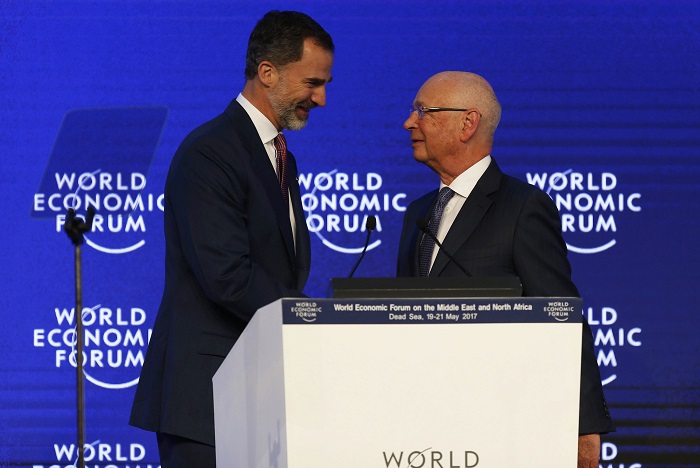WEF on MENA concludes highlighting entrepreneurship
Published : 21 May 2017, 23:57
The World Economic Forum (WEF) on the Middle East and North Africa (MENA), concluded in Jordan on Sunday.
The forum included several discussions concerning pressing issues facing the region as well as the launch of multiple programs and initiatives.
Speaking at the forum's last session, Head of Regional Strategies of the MENA WEF, Mirek Dusek, said: "We launched two big initiatives in Jordan. One is 'Internet for all,' which looks at the digital infrastructure in Jordan and among Syrian refugees."
"We also launched a new partnership called the 'Sustainable Development Initiative Partnership' (SDIP) where Jordan is becoming a regional hub for enabling blended finance toward infrastructure projects," he said.
Jordan became the 36th member of the SDIP, and plans to solve the financing of sustainable infrastructure projects in developing countries.
The meeting also witnessed the launch of the Palestinian Education Trust, a 100 million U.S. dollars fund for the transformation of the Palestinian education system, with 10 million dollars already committed.
The chief outcomes of the 2017 MENA WEF included the participation of 100 Arab startups.
Many of the startups are developing their business models, products and services with new technologies such as artificial intelligence, blockchain and satellite technology.
These startups are thereby pioneering a regional generational transformation while doing away with region-specific gaps in products and services.
A new report, the Future of Jobs and Skills in MENA: Preparing the Region for the Fourth Industrial Revolution, was launched in the Forum.
The report revealed that few MENA economies are prepared for the impending jobs and skills disruption which technological changes will bring with them.
Over 1,100 business and political leaders as well as civil society representatives, international organizations, youth and media from over 50 countries participated under the forum's theme of "Enabling a Generational Transformation."
Forum participants also looked into extremism and how to deal with challenges such as water scarcity, unemployment, energy, education, health, infrastructure and other fields.


